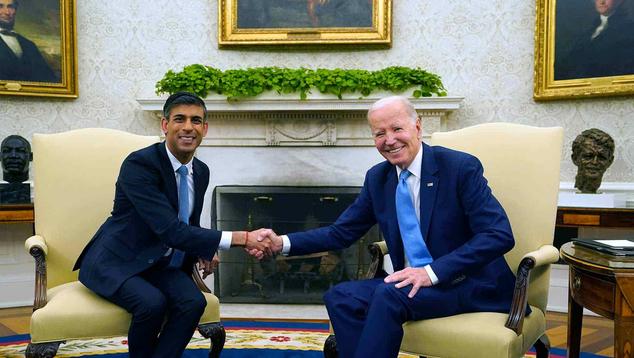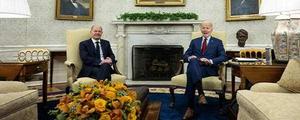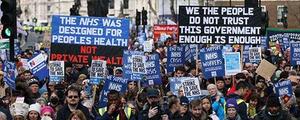For decades, much has been made of the “special relationship” between the United States and the United Kingdom. But in 2022, the national governments of both nations shared a somewhat less special accomplishment: earning the least confidence from their constituents of any G7 member country.
When Gallup first measured national confidence in governments around the world nearly two decades ago, both President George W. Bush and Prime Minister Tony Blair were well into their terms in office. The governments they led retained extensive confidence domestically -- far more so than for almost all the rest of the G7 (Canada, France, Germany, Japan and Italy).
Fast forward to 2022, and the tables have turned. Roughly one in three adults in the U.K. (33%) and U.S. (31%) say they have confidence in their national governments: putting them at the bottom of the G7 countries.
As governments on both sides of the Atlantic have struggled, other administrations in G7 nations have solidified their positions among their electorates. In Europe, confidence in Italy’s government has almost doubled since 2019 (from 22% to 41% in 2022). Similarly, confidence in the French government has increased steadily since French President Emmanuel Macron came to power: rising from 37% in 2017 to 46% in 2022. In Olaf Scholz’s first full year as chancellor of Germany, he has continued Angela Merkel’s trend of high German confidence (61%) in government -- the highest confidence level in the G7.
Even though confidence in the Canadian government has slipped from its highs under Prime Minister Justin Trudeau, a majority (51%) nevertheless retain faith in it. In Japan, which ranked last among G7 countries between 2007 and 2012, confidence in government has since more than doubled to 43% in 2022.
Confidence in U.S. Government Continues Free Fall
The U.S. has seen a sharp decline in the public’s confidence in the national government over the past couple of years. In 2020, almost half (46%) of U.S. adults expressed faith in their government, likely boosted by the effect of the COVID-19 pandemic.
But after President Joe Biden took office, confidence in government slipped to 40% in 2021 and again to 31% in 2022. This is on par with the lowest rates of confidence measured in the U.S. government since Gallup started tracking it globally in 2006 -- with the other lows measured in 2013, 2016 and 2018 under former Presidents Barack Obama and Donald Trump.
Declining domestic confidence in the U.S. government has occurred alongside declining approval ratings on the world stage. Median global approval of U.S. leadership slipped to 41% in 2022, down from 45% in 2021 during Biden’s first year in office.
Turmoil in Westminster May Be Blurring the Lines
Across the Atlantic, Britons’ confidence in their national government has been relatively low since 2019. But as is true for the U.S., confidence in the U.K. also reached a near-record low in 2022, on par with its level in 2008 during the financial crash (32%).
The U.K. political system has been rocked by several major events in recent years, including Brexit, the “Partygate” scandal and frequent turnover among its prime ministers. Since 2019, the U.K. has had four prime ministers in as many years.
For countries across the globe, leadership approval and confidence in government are highly related.
The same relationship is present in the U.K., where since 2006, confidence in the government has been far higher among those who approve of the U.K.’s leadership. But this changed dramatically in 2022, as the Partygate scandal intensified and numerous stories of alleged governmental wrongdoing dominated the headlines.
In 2022, confidence in the government collapsed, especially among Britons who approved of their country’s leadership (38%). This is the lowest level of confidence in the world among people who approve of their leadership -- tied with Lebanon.
After years of clear distinction, the line between governmental confidence and leadership approval in the U.K. is now blurred. This may be a concern for the conservatives -- in power since 2010 -- ahead of the general election likely to be held at the end of next year.
Bottom Line
Much has changed since Gallup surveyed G7 countries in 2022, and recent events could have shifted these trends even further -- including the political fallout from Trump’s legal troubles and former U.K. Prime Minister Boris Johnson’s dramatic resignation from parliament in recent weeks.
The U.S. and the U.K. face crucial elections around the end of 2024. On both sides of the Atlantic, the election results will likely prove decisive in whether the public’s faith in their governments can be rebuilt in coming years or will erode yet further.




